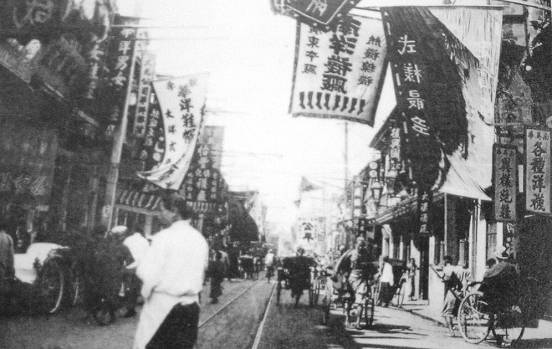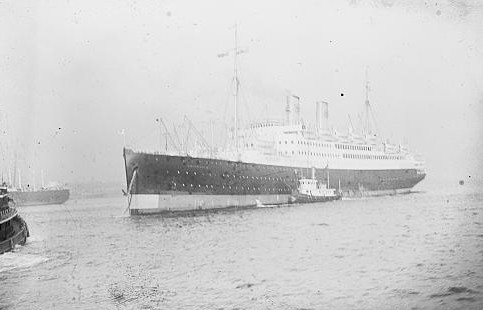Luckiest Man in China, Part 2

Restaurant Week at Willow was in full swing. Mac and I sat way down the bar from Old Jim and his bride Mary, and a bunch of civilians- including an irritating party from DARPA who talked too much—were clogging the aisles.
The point to Restaurant Week is to offer great deals on a fixed price menu to try to expose the food tourists to the excellence of Tracy O’Grady’s cuisine. Mac had ordered some of the Greyure Cheese Puffs to complement his Racer 5 Indian Pale Ale.
He clearly relished the change in his medication that made he able to enjoy a beer now and again. “Speaking of food,” he said, “Wendy Furnas was able to dine out on his experiences in Shanghai the rest of his career. He was asked to speak many times on his escape and subsequent imprisonment.
It was pretty amazing, and not unlike many experiences of those who were subject to Japanese care.
“I just read the account of Louis Zamperini’s odyssey in Japanese POW camps in Laura Hillenbrand’s best-seller “Unbroken.”
“That was true for a lot of folks. Wendy had his experience in the Bridge House Prison in Shanghai. Pretty grim. Wendy described some of the torture sessions that went on there, and not all of the survivors had Louie Zamperini’s ability to transcend the experience.”
“I haven’t heard of Bridge House before,” I said. “I wish I had known. I was in Shanghai with a delegation that wanted to talk to people who didn’t want me around, so they cut us loose for the day. My pal Val and I got to just cruise around on the subway and look at stuff in town. Wish I had known.”
“It wasn’t like the Hanoi Hilton,” said Mac pensively. “Wendy said it was just one of several camps the Kampeitei set up. Bridge House was an Art Deco European-style apartment building near Sichuan Beilu. There were 15 cells in the prison, most of them reconstructed to have cell doors that could be opened from only one side. He said they were like cages built with half-foot wooden planks set a couple inches apart.”
“Ugh,” I said. “I can’t begin to imagine. I was fascinated to see the old buildings in Shanghai. We were walking through the French concession and I realized the buildings were exactly the same as old Hanoi. I had to hit myself. It wasn’t Chinese or Vietnamese architecture. It was a European idea. Wild.”
“Yes. Exactly,” said Mac. “Wendy wound up at Bridge House Prison because of his association with the two newspapers he worked for after the American School shut down.”
“Was he tortured?”
“The Kampeitei were known to use all sorts of methods to get confessions, which is how Wendy came to be sentenced to death. His fellow inmates were guys like the head of Dodge China and the head of the Shanghai Stock exchange. The Japanese thought they jeopardized the security of Japanese rule in Shanghai.”
“I imagine so. Actually, they probably were. Wendy was lucky to get exchanged.”
“No kidding,” said Mac, taking a sip of beer. “Wendy claimed it was the first-ever prisoner exchange between the Japs and the Americans. He came home on the Swedish ship MS Gripsholm. That is why he always said he was the luckiest guy in China.”
“Wasn’t Gripsholm the boat that brought back the Naval Attaches from Tokyo?”

Mac nodded. “More than that. They kept a neutral Swedish Captain and crew and sailed under the Red Cross flag like a hospital ship. Between ‘42 and the end of the war, she carried Japanese and German nationals back home, and at exchange points picked up Americans and Canadians- and Brits married to them to bring back here.” He contemplated a cheese puff. “I cant eat all these,” he said.
“That must have been weird,” I said. “I will have one, but carbs are my enemy these days.”
“I imagine it is these days, but we had more serious enemies then. Everyone on the ship was hoping the submarines of both sides would recognize her and not put torpedoes into the hull. All told she made a dozen round trips in the middle of the shooting war and carried almost 30,000 passengers. In the Pacific, Wendy came back via the neutral ports; at Lourenco Marques or Goa.”
“What a story,” I said, downing my glass of wine.
“That isn’t all of it. The State Department kept the lease on Gripsholm through 1946. She was the ship that repatriated Italian deportees from America back to Naples after the war.” He smiled, and I had to laugh.
“You mean like naval Intelligence’s favorite mobster Lucky Luciano?” I smiled. “That interlude still touches a nerve some places.”
Mac smiled enigmatically and took a sip of beer. “Wendy suck around on active duty like I did, and had more than thirty years of service before he was done. He did the usual stuff at the Pentagon and relieved me in Hawaii and at CINCNELM in London.”
“He had a great career,” I said. “I wish I could have talked to him about the War. It is amazing what we are losing.”
“Well, you haven’t lost me yet,” he said, and Tinkerbelle came buy and asked us if we wanted another round.
I think we did.
Copyright 2012 Vic Socotra
www.vicsocotra.com
